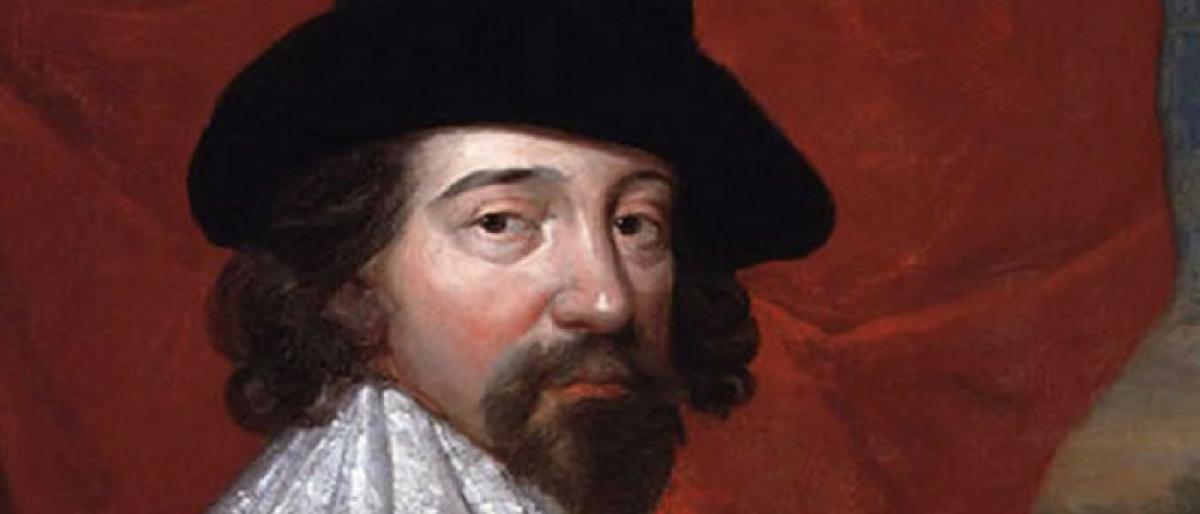Live
- Trinamool to hold crucial Working Committee meeting on Monday, organisational reshuffle on agenda
- Who is Breon Peace? The US Attorney Behind the Indictment of Gautam Adani
- Quick commerce workforce expansion to surge by 60 pc in India
- Omar Abdullah to embark on Umrah visit to Saudi Arabia on Nov 24
- Hyderabad Population 2024: 1.6 Crore People and 85 Lakh Vehicles Under HYDRAA's Jurisdiction
- "Wanaparthy District Collector Adarsh Surabhi Orders Precautions to Ensure Safe Mid-Day Meals"
- Jain Monk Shri 108 Jnaneshwar Muni Attains Samadhi at Devlapur
- Meet DJ Yogi: The Favorite DJ of Bollywood Celebrities and Sports Stars
- Synergy Marine Group Champions Onboard AI Agriculture for Healthier Crews and a Greener Future
- BJP alleges Rs 45 cr scam by AAP govt in school construction
Just In

There are many regularities in nature that the species of homo sapiens has had to recognized for survival. The Sun and the Moon periodically repeat their movements. Some motions, like the daily “motion” of the Sun, are simple to observe, while others, like the annual “motion” of the Sun, are far more difficult.
On the simplest level, science is knowledge of the world of nature. Science, defined simply as knowledge of natural processes, universal among mankind, and it has existed since the dawn of human existence
There are many regularities in nature that the species of homo sapiens has had to recognized for survival. The Sun and the Moon periodically repeat their movements. Some motions, like the daily “motion” of the Sun, are simple to observe, while others, like the annual “motion” of the Sun, are far more difficult.
Both motions correlate with important terrestrial events. Day and night provide the basic rhythm of human existence. The seasons determine the migration of animals upon which humans have depended for millennia for survival. With the invention of agriculture, the seasons became even more crucial, for failure to recognize the proper time for planting could lead to starvation.
Thus, for example, one of the astronomical “laws” of the Middle Ages was that the appearance of comets presaged a great upheaval, as the Norman Conquest of Britain followed the comet of 1066. True regularities must be established by detached examination of data. Science, therefore, must employ a certain degree of skepticism to prevent premature generalization.
The mind cannot tolerate chaos, so it constructs regularities even when none objectively exists. Science, therefore, must employ a degree of skepticism to prevent premature generalisation.
The history of scientific thought represents the transition from superstition and faith to reason and logic – leading to conclusions based on observable and verifiable phenomena.
Modern quantum mechanics, for example, has given up the quest for causation and today rests only on mathematical description. Modern biology, on the other hand, thrives on causal chains that permit the understanding of physiological and evolutionary processes in terms of the physical activities of entities such as molecules, cells, and organisms.
The past on its own terms, and the fact is that for most of the history of science natural philosophers appealed to causes that would be summarily rejected by modern scientists. Spiritual and divine forces were accepted as both real and necessary until the end of the 18th century and, in areas such as biology, deep into the 19th century as well.
The scientific method is a method that helps us find that answers for the questions which arise when we observe world around us. A scientific theory is a logical explanation in nature based on facts. And an inference is the process of drawing conclusions from given evidence
Scientific observation is the central element of scientific method or process. The core skill of scientist is to make observation.
An experiment is a procedure carried out to support, refute, or validate a hypothesis.Thus scientific process or scientific method requires observations of nature and formulating and testing the hypothesis.
It consists the four steps of observing something and asking questions about a natural phenomenon hypothesis making a predictions about logical consequences of the hypothesis predictions of by controlled experiment, a natural experiment, an observational study or a field experiment and making conclusion on the basis of data or information gathered in your experiment.
Francis Bacon, an English philosopher and scientist of the 17th century, was an influential supporter of experimental science. He disagreed with the method of answering scientific questions by deduction and references observations, experiments. Notably, he was the first to follow the scientific method as we understand it today.

© 2024 Hyderabad Media House Limited/The Hans India. All rights reserved. Powered by hocalwire.com







